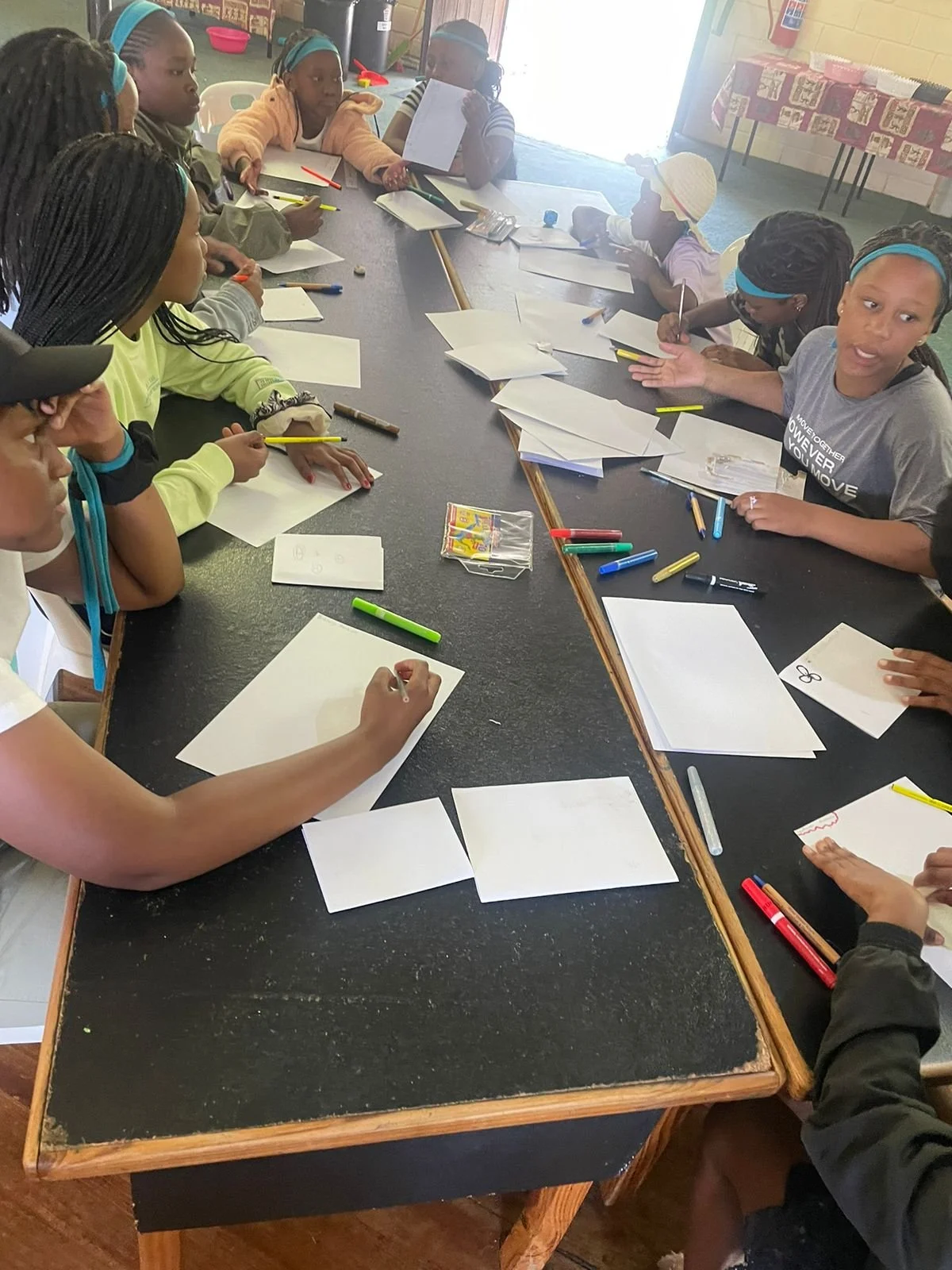
Social & Emotional Learning Programme
In 2024–2025, Mind Matters successfully piloted a Social and Emotional Learning (SEL) programme at a primary school in Khayelitsha, supporting 163 students from Grade RR to Grade 7. The programme focused on enhancing emotional recognition, resilience, self-confidence, mindfulness, stress management, and peer relationships.
Recognising the impact of emotional well-being on academic success, the SEL initiative was designed to foster communication skills, decision-making, and emotional regulation in young learners. In a context where many students face the challenges of violence, trauma, and socio-economic hardship, SEL offers vital tools for resilience and long-term success.
By strengthening personal and social skills through active learning, the programme contributed to improved student engagement, reduced emotional distress, and promoted empathy and kindness. Mind Matters remains committed to integrating SEL into school systems to build healthier, more supportive learning environments for South African youth.
To support SEL implementation, we developed the following resources:
-
Targeted at teachers, this handbook serves as a crucial resource for providing immediate support to students who may be developing mental health issues, experiencing a deterioration in their condition, or facing a mental health crisis.
The handbook equips teachers with guidelines to assist students until they can access appropriate professional treatment or until the crisis is resolved. By outlining how to recognize and respond to various mental health challenges, including depression, the handbook empowers teachers to play a vital role in supporting students during critical moments, fostering a more understanding and responsive school environment.
-
This resource is designed to assist teachers in the early identification of students who may be experiencing neurodevelopmental conditions that affect their brain function and neurological development. These conditions can lead to challenges in social interactions, cognitive abilities, emotional regulation, memory, language, behavior, learning, and motor skills. With proper understanding and appropriate interventions, support, and accommodations, students can successfully manage their challenges.
This guide equips teachers with the knowledge to recognize these conditions, enabling them to make timely and informed referrals for additional support, ultimately fostering a more inclusive and supportive learning environment for all students.
The handbook equips teachers with guidelines to assist students until they can access appropriate professional treatment or until the crisis is resolved. By outlining how to recognize and respond to various mental health challenges, including depression, the handbook empowers teachers to play a vital role in supporting students during critical moments, fostering a more understanding and responsive school environment.
-
We also created a referral resources sheet for our social and emotional learning program to enhance the integration of support services within a multi-tiered system.
The purpose of the referral resource sheet is to ensure that teachers can easily access information on referring students to mental health professionals for early support.
By facilitating these connections, we aim to help teachers integrate professional assistance into the classroom, thereby enhancing their ability to support students effectively and address their needs promptly.
The handbook equips teachers with guidelines to assist students until they can access appropriate professional treatment or until the crisis is resolved. By outlining how to recognize and respond to various mental health challenges, including depression, the handbook empowers teachers to play a vital role in supporting students during critical moments, fostering a more understanding and responsive school environment.











